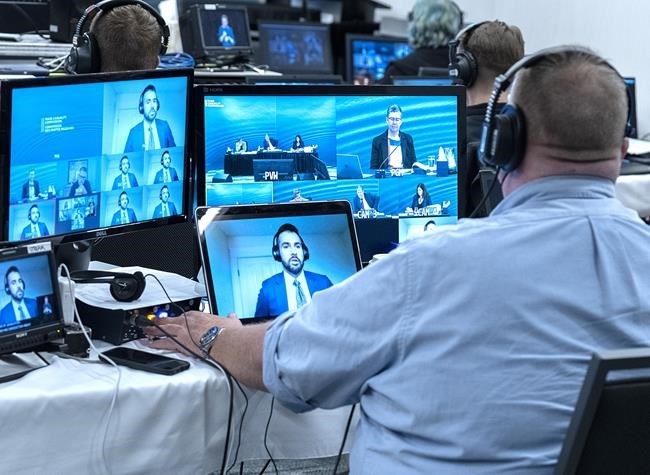HALIFAX — The inquiry into the mass shooting in Nova Scotia heard Thursday from experts who warned that the federal and Nova Scotia governments have a poor track record when it comes to implementing recommendations from previous inquiries.
As a prime example, two experts pointed to the landmark inquiry into the 1971 wrongful murder conviction of Donald Marshall Jr., which in 1990 called for sweeping changes to the province's criminal justice system.
Anthropology professor L. Jane McMillan said that despite that inquiry's high profile, some of its key recommendations led nowhere.
"There was a good deal of energy put into making sure the low-hanging fruit got picked and eaten," said McMillan, special adviser on Indigenous research at St. Francis Xavier University in Antigonish, N.S.Â
"But the longer, most systemic changes that the Mi'kmaq would prefer to see were very sporadic, uneven and largely unfulfilled."
Heidi Marshall, co-founder of the Jane Paul Indigenous Resource Centre in Sydney, N.S., told the inquiry that the provincial royal commission led to the establishment of a Mi'kmaq police service in Cape Breton, but it failed five years later because of a lack of funding and jurisdictional squabbles.
"The policing service at the airport had more funding than the tribal police," said Heidi Marshall, a member of Membertou First Nation who has long pushed for implementation of the royal commission's recommendations.
"That was an indication of how much funding, resources and care that the government of Canada and the province were willing to invest in our community."
McMillan, author of the book "Donald Marshall Jr. and the Mi'kmaw Quest for Justice," said substantial efforts were initially made to hire Indigenous police officers. "But over time, the recruitment focus was diluted and people were not being successfully recruited into the ranks .... The (hiring) criteria had cultural biases that remain problematic."
The Unama’ki Tribal Police Service was wound down in 2001. At the time, Indigenous leaders said federal and provincial funding was inadequate for a police force that served five communities. McMillan said the service was also undermined by unclear jurisdictional boundaries.
"Many of the recommendations from the Marshall inquiry were taken up with great fanfare early on ... (but) they ran into this sort of static moment, and people thought, 'One and done,'" she said.
McMillan said those leading the inquiry into the 2020 shootings, known as the Mass Casualty Commission, must make sure their recommendations are accompanied by deadlines for implementation and some sort of accountability mechanism to ensure changes are made.
"That accountability piece is not something that was written into the Marshall inquiry recommendations," McMillan said.
An evaluation of the effectiveness of the Marshall report wasn't started until after a First Nations man was shot to death by police in 2008 and a Mi'kmaq woman died after having a stroke in a police jail cell in 2009, McMillan said.
Until those tragic events came to light, federal and provincial officials had lost sight of the Marshall report's goals, she said.
"They thought they were doing everything they needed to do," McMillan said. "We're still seeing this today." Â Â
Hayley Crichton, head of the public safety and security division within Nova Scotia's Justice Department, said her office was created as a result of recommendations from the Marshall report. Among other things, the division oversees the province's police audit program.
"What came out of that inquiry is the importance of holding police accountable to the recommendations made," Crichton told the inquiry. "Setting standards is one thing, but ensuring accountability ... is just as crucial."
Bill Moore, a former deputy police chief in Halifax, also said the mass shooting inquiry should have accountability tools built into its recommendations.
"It should not be a hope and a wish," said Moore, head of the city's public safety project and former head of the Canadian Association of Chiefs of Police. "Having (recommendations) out there, only to have them brought up years later ... and doing it over again, that doesn't work."
The federal-provincial inquiry is expected to wrap up its public hearings later this month, and its final report is due by March 31.Â
This report by The Canadian Press was first published Sept. 8, 2022.
Michael MacDonald, The Canadian Press




